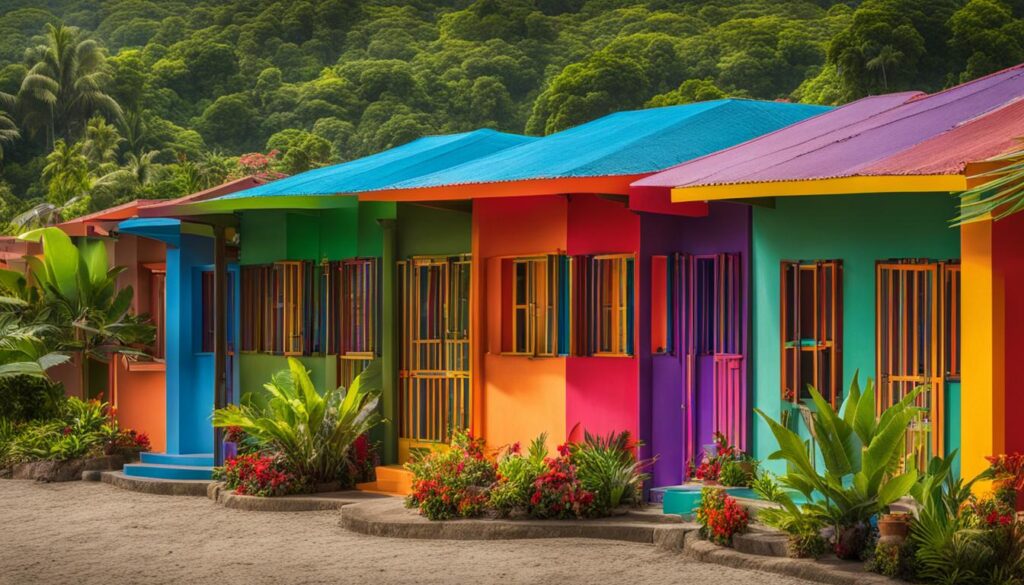At the forefront of property financing in Costa Rica, GapInvestments.com stands as a beacon for…

Understanding Costa Rica Residency Application Fees
Obtaining residency in Costa Rica requires the payment of various fees, which can vary depending on the type of residency and individual circumstances. The fees associated with the residency application process cover administrative costs and are essential for obtaining legal status in the country. It is important to understand the different types of residency options available in Costa Rica and the corresponding application fees in order to plan and budget accordingly.
Key Takeaways:
- Costa Rica residency application fees vary depending on the type of residency and individual circumstances.
- Understanding the different types of residency options in Costa Rica is crucial for effective planning and budgeting.
- Consulting immigration experts can provide valuable guidance in navigating the residency application process.
- Being aware of the general expenses involved in the application process is essential for individuals seeking residency in Costa Rica.
- Stay informed about the most up-to-date and accurate information regarding residency application fees by consulting official sources or seeking guidance from immigration experts.
Types of Residency in Costa Rica
In order to obtain residency in Costa Rica, individuals have several options to choose from. Each type of residency has specific requirements and benefits, catering to different circumstances and preferences. Here are the main types of residency options available in Costa Rica:
- Pensionado: This type of residency is designed for individuals who are receiving a certain amount of pension or retirement income on a monthly basis. It offers the advantage of being able to live in Costa Rica while enjoying the benefits of their pension or retirement funds.
- Rentista: The Rentista residency is ideal for those who wish to deposit a specific amount of money in a Costa Rican bank to support their long-term residence in the country. By maintaining the required balance in their bank account, they can secure their residency status.
- Inversionista: The Inversionista residency is suited for individuals who are willing to invest a certain amount of money in Costa Rica. This can be in the form of purchasing property, starting a business, or making any other significant investment that benefits the country’s economy.
Moreover, it is essential to understand the distinction between temporary and permanent residency in Costa Rica. Temporary residency permits must be held for three years before individuals become eligible to apply for permanent residency. However, there is also a pathway to permanent residency without temporary residency for those who have a first-degree blood relative who is a Costa Rican citizen. This type of residency is known as Residencia Permanente Por Vinculo.

Understanding the various types of residency options in Costa Rica is crucial to determining the most suitable path for individuals seeking to establish legal residency in the country. Each type offers distinct advantages and requirements, allowing individuals to choose the option that aligns best with their personal circumstances and long-term plans.
Cost of Residency Application in Costa Rica
Obtaining residency in Costa Rica involves the payment of various fees, which can vary depending on the type of residency and individual circumstances. It is crucial to be aware of the cost of residency applications to plan and budget accordingly. The fees associated with the residency application process cover administrative costs and are essential for obtaining legal status in the country.
The specific fees for residency applications in Costa Rica can change over time, but there are general expenses to consider. These may include administrative fees, document translation fees, notarization fees, and registration fees. In addition to these application fees, there may also be costs for obtaining necessary documents, such as birth certificates, police clearance certificates, and passport copies.
To illustrate the cost of residency application in Costa Rica, here is a table outlining the general fees involved:
| Residency Application Fees | Cost |
|---|---|
| Administrative fees | $XXX |
| Document translation fees | $XXX |
| Notarization fees | $XXX |
| Registration fees | $XXX |
| Other document costs (birth certificates, police clearance certificates, etc.) | $XXX |
| Total Cost | $XXX |
Please note that these fees are approximate and can vary depending on individual circumstances and changes in regulations. It is advisable to consult the official website of the Costa Rican immigration authorities or seek guidance from immigration experts for the most up-to-date and accurate information regarding residency application fees.
Conclusion
Understanding the fees associated with residency applications in Costa Rica is crucial for individuals planning to relocate or establish legal residency in the country. The cost of residency application can vary depending on the type of residency and individual circumstances. It is important to be aware of the general expenses involved in the application process to effectively plan and budget.
Working with immigration experts, such as Costa Rica Immigration Experts (CRIE), can provide valuable guidance and assistance in navigating the residency application process. These experts have a deep understanding of the different types of residency available and can help individuals make informed decisions based on their specific circumstances.
By understanding the types of residency and the corresponding fees, individuals can take the necessary steps to achieve their goal of obtaining residency in Costa Rica. It is advisable to consult the official website of the Costa Rican immigration authorities or seek guidance from immigration experts to access the most up-to-date and accurate information regarding residency application fees.
FAQ
What are the types of residency options in Costa Rica?
The types of residency options in Costa Rica include Pensionado, Rentista, and Inversionista.
What is the difference between temporary and permanent residency in Costa Rica?
Temporary residency permits must be held for three years before individuals can apply for permanent residency. However, there is also a pathway to permanent residency without temporary residency for those who have a first-degree blood relative who is a Costa Rican citizen, known as Residencia Permanente Por Vinculo.
What are the costs associated with residency application in Costa Rica?
The costs associated with residency application in Costa Rica can include administrative fees, document translation fees, notarization fees, and registration fees. Additionally, there may be additional costs for obtaining necessary documents.
How can I determine the most up-to-date residency application fees?
It is advisable to consult the official website of the Costa Rican immigration authorities or seek guidance from immigration experts to determine the most up-to-date and accurate information regarding residency application fees.
Why is it important to understand the residency application fees in Costa Rica?
Understanding the residency application fees in Costa Rica is crucial for individuals planning to relocate or establish legal residency in the country. Being aware of the general expenses involved in the application process is essential for effective planning and budgeting.


